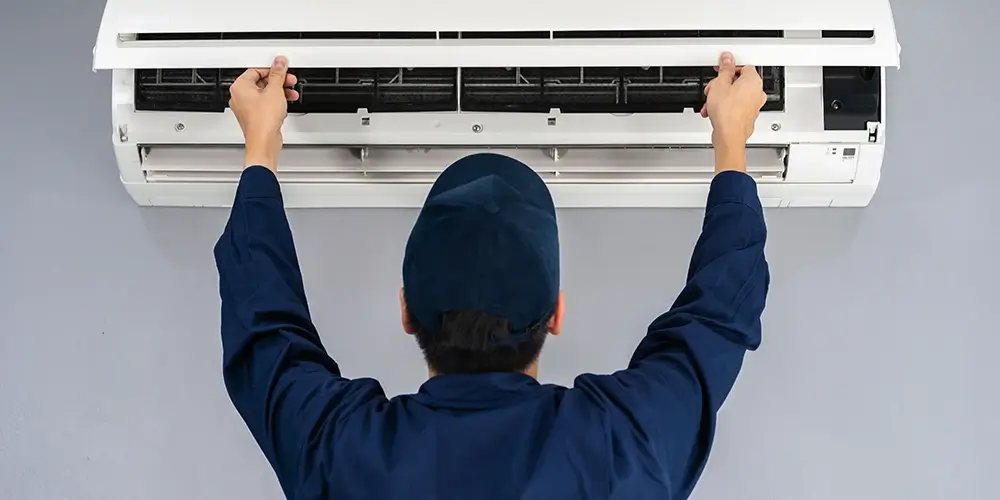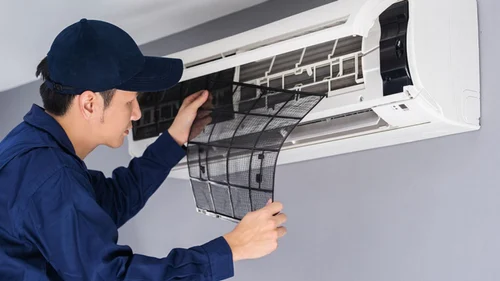Ac Repair Can Be Fun For Everyone
Ac Repair Can Be Fun For Everyone
Blog Article
Facts About Air Conditioner Repair Near Me Revealed
AC Repair Near Me: Professional Cooling System Repair Ensures Your Home Stays Comfy All Year Round
Types of AC Systems
When tackling air conditioning repair work, understanding the type of air conditioning system you're handling can conserve time, cash, and irritation. Ever wondered why some units cool a room quicker than others? Or why certain systems appear to break down more regularly? Let's peel back the layers.
Central Air Conditioning
Some Known Facts About Ac Air Conditioner Repair.
Envision a cool breeze streaming through an entire house, whispering comfort into every corner. Central air systems do precisely that. They use a network of ducts to distribute cooled air, counting on a compressor and condenser outside, combined with an evaporator coil inside. When this complex monster falters, pinpointing the problem can be like discovering a needle in a haystack.
Split Systems

Split systems are a popular choice for lots of homes-- part indoor unit, part outdoor compressor. They offer versatility and performance, however their double nature indicates repair can involve either component. Have you ever heard a strange noise outside your home only to discover the indoor system isn't cooling? That's a classic sign of a split system problem.
Things about Air Conditioner Repair Near Me
Window Units
These compact warriors battle summer season heat by fitting snugly into a window frame. They integrate all elements into a single box. Their simplicity typically suggests less repair headaches, however neglecting filters or enabling particles accumulation can result in reduced efficiency or breakdowns.
Ductless Mini-Splits
All about Repair Air Conditioner Near Me
Ductless systems bypass ductwork completely, making them ideal for homes without existing ventilation. They're quiet, efficient, and surprisingly durable. When repair work are required, service technicians must be skilled at dealing with refrigerant lines and electrical connections-- no small accomplishment.
Quick Recommendation Table
| Type | Key Includes | Typical Repair Work Issues |
|---|---|---|
| Central air conditioning | Ductwork, whole-house cooling | Duct leaks, compressor failure |
| Split System | Indoor & & outdoor units | Refrigerant leaks, fan motor problems |
| Window Unit | All-in-one, simple setup | Filthy filters, electrical faults |
| Ductless Mini-Split | No ducts, zoned cooling | Line leakages, sensor breakdowns |
Repair Air Conditioner Near Me Things To Know Before You Buy
Unwinding the A Lot Of Frequent AC Issues
Have you ever questioned why your a/c all of a sudden stops cooling during a sweltering afternoon? One typical perpetrator is a dirty or clogged air filter. This tricky villain limits air flow, requiring your system to work overtime, which not just reduces performance but can also cause early breakdowns. Envision attempting to breathe through a headscarf taken in dust-- it's exhausting!
Another frequent misstep is refrigerant leaks. These invisible leaks don't simply decrease cooling power but can likewise damage the compressor, the heart of your a/c system. How typically do you check for uncommon hissing sounds or ice formation on the coils? Catching these indications early can save you from costly repair work down the line.
Beyond the Fundamentals: Lesser-Known Issues
The Only Guide to Air Conditioning Repair
Sometimes, the thermostat itself is the mischief-maker. Miscalibrated or faulty thermostats send out combined signals, triggering the air conditioner to cycle erratically. Ever skilled your air conditioner switching on and off in rapid succession? That's called brief cycling, a sneaky efficiency drainer that can use out parts faster than you 'd expect.
Electrical problems, check here such as used wiring or a malfunctioning capacitor, may prowl beneath the surface. Air Conditioning Repair. These typically manifest as AC units failing to begin or unexpectedly closing down. A professional eye understands to evaluate these parts with accuracy tools, something a casual glance won't expose
Specialist Tips for Diagnosing Common AC Problems
The smart Trick of Air Conditioning Repair That Nobody is Talking About
- Inspect and replace air filters routinely-- every 1 to 3 months depending upon usage and environment.
- Listen for unusual noises like rattling or buzzing that might indicate loose parts or electrical faults.
- Examine the outdoor unit for particles or blockages that restrain air flow and trigger getting too hot.
- Try to find frost accumulation on evaporator coils, a hint towards refrigerant issues or air flow constraints.
- Test the thermostat settings and recalibrate if the temperature readings feel off.
Quick Reference Table: Manifestation & & Probable Triggers

| Sign | Probable Cause | Expert Suggestion |
|---|---|---|
| Warm air blowing | Low refrigerant or dirty coils | Clean coils and look for leaks immediately |
| Short cycling | Thermostat problems or large system | Change thermostat settings and speak with sizing guidelines |
| System will not begin | Electrical faults or capacitor failure | Test wiring and change capacitors as needed |
| Water leak | Clogged drain line or frozen evaporator | Clear drain lines and check for coil icing |
DIY AC Maintenance Tips
The Ultimate Guide To Air Conditioner Repair Near Me
Ever discovered your air conditioning system sputtering like an old engine on a hot summertime day? Disregarding subtle indications often means more than just a sweaty afternoon-- it's a prelude to unforeseen air conditioner repair work expenses. But what if you could catch those whispers before they turn into wails? Routine DIY upkeep can be your very first line of defense.
Basic Actions to Keep Your Air Conditioner Running Efficiently
7 Easy Facts About Ac Fixing Shown
- Tidy or Replace Filters: A clogged up filter is like attempting to breathe through a headscarf. Every 1-3 months, examine and switch out your filters. It enhances airflow and efficiency, avoiding compressor stress.
- Examine the Condenser Coils: Dust and particles function as unnoticeable blankets smothering your unit's cooling power. Carefully brush or vacuum the coils, but avoid severe chemicals that might erode the metal.
- Check the Drain Line: When was the last time you peeked at your drain pan? A clogged drain can cause water leakages and foster mold growth. Flushing it with a vinegar solution monthly keeps the circulation clear.
- Seal and Insulate: Are your ductworks whispering leakages? Sealing gaps with mastic or foil tape improves performance and minimize irregular cooling.
Pro Tips Beyond the Essentials
- Procedure your unit's voltage to capture subtle electrical wear before it sparks huge issues.
- Listen for unusual hums or rattles-- these acoustic breadcrumbs typically indicate loose parts or failing motors.
- Keep outside systems shaded but guarantee at least 2 feet of clearance around them for optimal airflow.
Ask yourself: Are you hearing your air conditioner's peaceful SOS or just awaiting it to shout? Requiring time for DIY air conditioner upkeep changes reactive repair work into proactive care, saving sweat, stress, and yes, cash.
Ac Fixing Things To Know Before You Buy
Why Competence in A/c Repair Work Matters
Imagine this: your AC system sputters and groans during a scorching afternoon, leaving you sweltering inside. Would you rely on an amateur fumbling with delicate parts, or would you seek the peace of mind of a expert air conditioning specialist!.?.!? The intricacies of modern-day cooling systems require precision and experience. A small mistake can escalate a small malfunction into a costly disaster.
Fix Air Conditioner Things To Know Before You Get This
Hidden Complexities Behind the Cool Breeze
Many ignore the layers hidden beneath the smooth exterior of an air conditioning system - Fix Air Conditioner. From refrigerant leakages that quietly drain performance to malfunctioning thermostats that misread temperature levels, these issues need more than a fundamental toolkit. Experts possess a keen eye for detecting issues that average homeowners ignore
Vital Tips for Picking the Right Professional
Indicators on Fix Air Conditioner You Should Know
- Accreditation and Training: Confirm credentials; a professional trained in the most current HVAC innovations is indispensable.
- Experience with Specific Systems: Not all air conditioning systems are developed equivalent; find somebody knowledgeable about your design's peculiarities.
- Diagnostic Approach: Experienced technicians use advanced tools-- like electronic leakage detectors and thermal imaging-- to identify covert faults.
What to Get out of a Pro's Diagnostic Process
| Action | Purpose | Expert Insight |
|---|---|---|
| Visual Assessment | Identify obvious wear or damage | Look for corrosion or unusual sounds-- an indicator typically neglected |
| Pressure Checking | Spot refrigerant leakages | Subtle pressure drops can hint at micro leakages invisible to the naked eye |
| Electrical Testing | Make sure circuit stability | Loose connections can simulate serious mechanical failures |
Ac Fixing Things To Know Before You Get This
Why DIY Typically Falls Short
Appealing as it is to tinker with your air conditioner unit, do it yourself repairs regularly miss out on the source. For example, topping off refrigerant might momentarily cool your space but neglects leakages that intensify in time. Expert service technicians don't simply patch symptoms; they pursue the underlying mechanical and electrical faults that sap performance.
The smart Trick of Ac Repair Near Me That Nobody is Talking About
Questions to Ask Before Employing
- What diagnostic tools do you use to determine issues?
- Can you describe the repair work process and expected results?
- Are you familiar with the refrigerants compatible with my system?
- Do you follow security procedures for handling electrical parts?